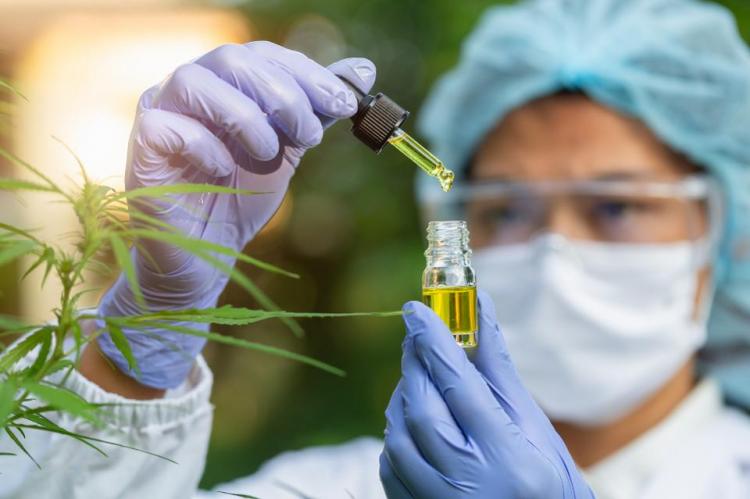To Unlock the Potential of Cannabis, The Industry Needs More Research
A recent spate of vaping-related lung illnesses has lawmakers and health officials calling for more testing of legal cannabis products. But because cannabis is classified as a Schedule I drug by the federal government, states’ hands are tied when it comes to testing. One way to open the door to more cannabis testing is to remove the research restrictions in place due to cannabis having Schedule I designation.
Congress declared cannabis a Schedule I drug — the most restrictive classification — nearly 50 years ago when it passed the Controlled Substances Act. While the law has been revised several times, cannabis remains grouped in the same Schedule I category as drugs like heroin, LSD and ecstasy, even though it is far less addictive and dangerous. Schedule I drugs are defined as those with no currently accepted medical use and a high potential for abuse which belies the numerous studies that have shown the medicinal benefits of cannabis, particularly its positive effect on patients with epilepsy and other serious conditions.
The Drug Enforcement Administration’s (DEA) classification of cannabis is a catch-22. Its Schedule I status can only be removed with more tests to prove its benefits, but these tests are incredibly difficult to carry out due to its status. In order to be allowed to conduct tests on cannabis, researchers have to get permission from the DEA and when they do get permission, they’re only allowed to use cannabis grown in the one lab, housed at the University of Mississippi, that has federal permission to grow and study cannabis and provide it to other labs for testing. The DEA recently announced plans to expand cannabis research in the U.S. In late August, after a years-long hiatus in communications between the agency and potential growers, federal officials said they would soon resume contact with groups that have applied to register to manufacture cannabis for researchers.
The above news is welcome, because with such a limited supply and tight DEA restrictions, cannabis’ Schedule I status is stalling development of cannabis-based medications and better legal cannabis products, despite the fact that cannabis is available in some form to consumers and patients in 33 states and the District of Columbia. As cannabis becomes a more mainstream product — and as more patients turn to it to manage medical conditions — it must be studied in-depth.
Some members of Congress are calling for reform to cannabis’ outdated schedule classification. In 2019, several bipartisan bills were introduced to change cannabis to a lower class of drugs or declassify it all together. The Veterans Equal Access Act was also introduced this year, which would allow doctors at the Veterans Administration to prescribe cannabis to veterans suffering from PTSD and chronic pain.
Even organizations like Major League Baseball (MLB), one of the more conservative professional sports leagues, and the MLB players union announced this month that they have reached an agreement to remove marijuana from the league’s list of banned substances. Their landmark decision comes on the heels of the accidental overdose death of Los Angeles Angels pitcher Tyler Skaggs, who was found to have opioids – including fentanyl, oxycodone and oxymorphone - in his system when he passed this summer.
Removing cannabis’ Schedule I status would enable more labs to grow their own plants for research, eliminating the time many researchers waste waiting to receive approval from the DEA and removing archaic restrictions that have long blocked studies into the medical benefits of cannabis. Additional studies would help to ensure that consumers know exactly what they are getting when they purchase products. If bills like the Veterans Equal Access Act are passed, more medical patients would also have access to a much-needed treatment that many currently turn to the illicit market to purchase.
Additionally, lifting the Schedule I status would increase cannabis business activity across the country. Though marijuana is a Schedule I drug, the cannabis industry is currently the fastest job creator in the U.S. Lifting the restrictions would increase the employment of scientists, researchers and cultivators who could freely study the plant. Removing the Schedule I status would allow cannabis to be regulated in a similar manner to alcohol, opening up thousands of job opportunities and creating millions in tax revenue for the federal government. Declassifying cannabis would also help to reduce the $3.6 billion that the U.S. spends each year enforcing marijuana laws.
There is overwhelming support for legalization across the U.S. and the federal government has a chance to get in step with the majority of the nation. As federal lawmakers continue their efforts to remove cannabis’ Schedule I status, a process that could take the DEA up to nine years, they can speed up the process by passing the bills already on the table to promote more cannabis research. Removing the strict federal limitations on cannabis will provide better and more reliable cannabis products to the millions of people who can legally purchase them.
- Log in to post comments

